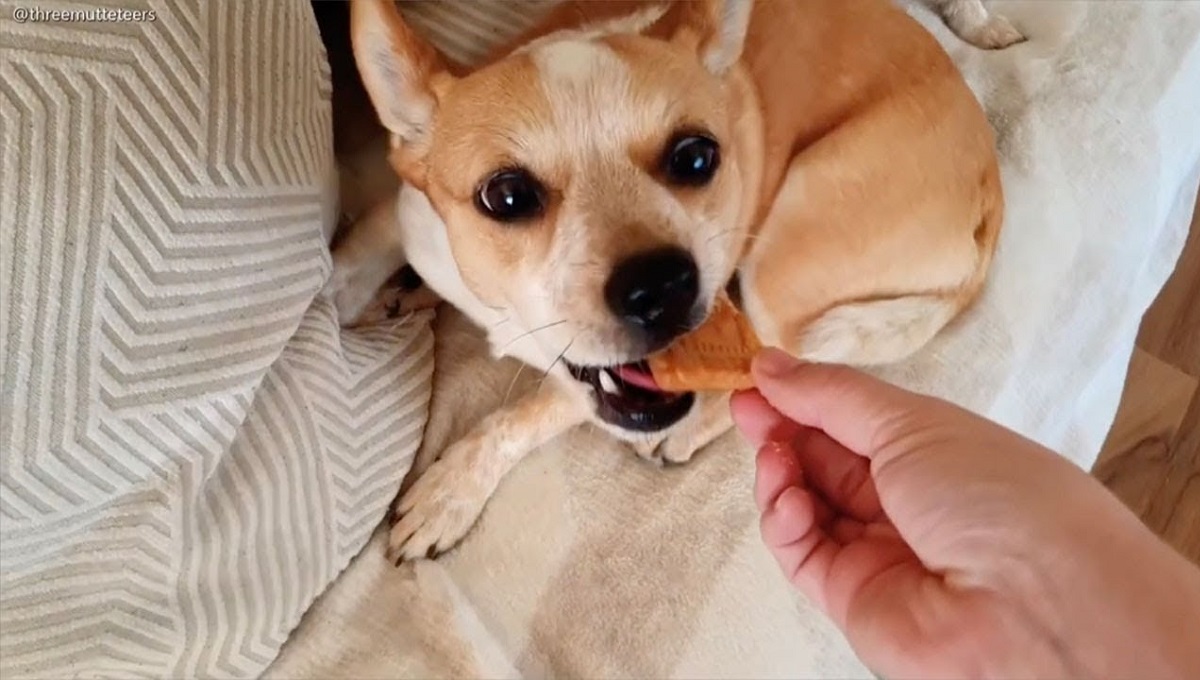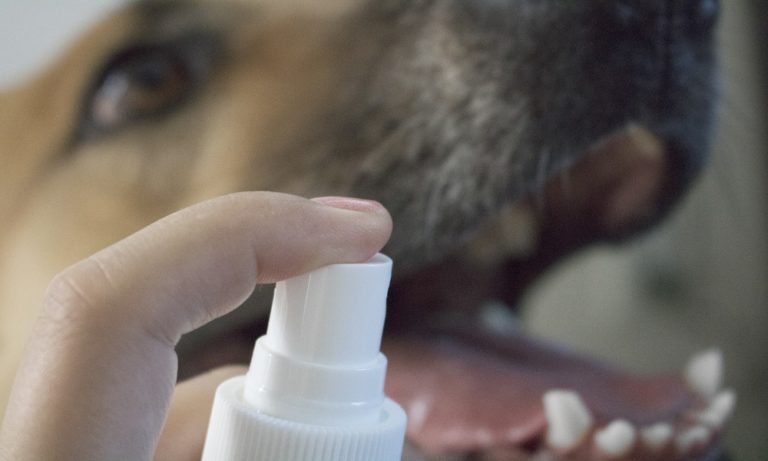Can Dogs Eat Biscuits?
It’s safest to offer biscuits and treats made specifically for dogs, avoiding ingredients that are toxic to them, such as chocolate, raisins, grapes, or xylitol. Moderation is key, as excessive treats can lead to weight gain and health problems.
Always monitor your dog for any adverse reactions or allergies when introducing new treats into their diet. Sure, dogs can eat biscuits but that doesn’t mean they should! Just like with people, it’s important to monitor your dog’s intake of sugary snacks.
Too much sugar can lead to weight gain and other health problems. So if you’re going to give your pup a biscuit, do so in moderation. As always, make sure to check the ingredients list to ensure the treat is safe for canine consumption.
Can Dog Eat Human Biscuits?
There are a lot of people who ask whether dogs can eat human biscuits or not. While the answer may seem straightforward, there are actually a few things to consider before feeding your dog any type of human food.
For starters, it’s important to know what ingredients are in the biscuit. If the biscuit contains chocolate, raisins, or any other type of ingredient that is toxic to dogs, then it’s best to avoid giving it to them altogether.
Even if the biscuit doesn’t contain anything harmful, it’s still important to be aware that some dogs have allergies to certain ingredients in human food.
So, if you’re unsure whether or not your dog will be able to tolerate the biscuit, it’s always best to err on the side of caution and avoid giving it to them.
Another thing to keep in mind is that biscuits are typically high in sugar and fat. While these things might not be harmful in moderation, they can cause problems for dogs who are overweight or have diabetes.
It’s generally best to avoid feeding biscuits (or any other type of human food) to your dog on a regular basis. So, can dogs eat human biscuits? The answer is maybe but it’s best to check with your veterinarian first and be aware of potential risks before giving them any kind of treat.
What Happens If My Dog Ate Biscuits?
If your dog has eaten biscuits, the outcome largely depends on the type of biscuits, the quantity consumed, and your dog’s size and overall health. Plain biscuits made for dogs or certain human biscuits in small quantities are not harmful. There are some potential consequences to consider:
Digestive Upset: If the biscuits are high in fat or sugar, your dog may experience gastrointestinal upset, which can include diarrhea, vomiting, or an upset stomach.
Weight Gain: Regularly feeding your dog biscuits, which are often calorie-dense, can contribute to weight gain if not given in moderation.
Toxic Ingredients: If the biscuits contain toxic ingredients like chocolate, raisins, grapes, or xylitol, it’s crucial to contact your veterinarian immediately, as these substances can be extremely harmful to dogs.
Allergies: Some dogs may have allergies or sensitivities to certain ingredients in biscuits, leading to skin issues, itching, or other allergic reactions.
If you’re concerned about your dog’s consumption of biscuits or if they show any signs of distress or adverse reactions, it’s best to consult with your veterinarian for guidance and to rule out any potential health risks.
Which Biscuit is Good for Dogs?
When choosing biscuits or treats for your dog, it’s essential to look for options that are safe, nutritious, and appropriate for their dietary needs. Here are some qualities to consider when selecting biscuits for your dog:
Specifically Made for Dogs: Look for biscuits and treats that are specifically formulated for dogs. These products are designed to meet your dog’s nutritional requirements and are less likely to contain harmful ingredients.
Limited Ingredients: Choose biscuits with a simple and easily understandable ingredient list. Avoid products with artificial additives, preservatives, and excessive fillers.
Low in Fat and Sugar: Opt for biscuits that are low in fat and sugar to prevent digestive upset and weight gain. High-fat and sugary treats can lead to obesity and other health issues.
Size and Texture: Select biscuits appropriate for your dog’s size and age. Puppies may need softer treats, while adult dogs can handle harder biscuits. Also, choose treat sizes that are suitable for your dog’s breed.
Grain-Free Options: If your dog has food allergies or sensitivities, consider grain-free biscuits made with alternative ingredients like sweet potatoes or peas.
Allergen-Free: Be aware of common allergens like wheat, soy, and dairy. If your dog has known allergies or sensitivities, opt for biscuits that do not contain these ingredients.
If you’re unsure about which biscuits are best for your dog, consult with your veterinarian. They can provide recommendations based on your dog’s specific needs and dietary restrictions.
Can Dogs Eat Bread Or Biscuits?
Dogs can eat bread and biscuits in moderation, but it’s important to be mindful of the type and quantity of bread or biscuits you offer. Here are some considerations:
Bread
Plain, Unseasoned Bread: Small amounts of plain, unseasoned bread are generally safe for dogs. Plain white or whole wheat bread is usually better than bread with added ingredients like garlic or onion, which can be toxic to dogs.
Moderation: Bread should only be given as an occasional treat and not as a significant part of your dog’s diet. Bread is calorie-dense and can lead to weight gain if given too often.
Watch for Allergies: Some dogs may be allergic or sensitive to ingredients in bread, leading to digestive upset or allergic reactions.
Biscuits
Dog-Specific Biscuits: It’s safest to feed your dog biscuits and treats made specifically for dogs. These are formulated to meet their nutritional needs and are less likely to contain harmful ingredients.
Moderation: Biscuits should be given in moderation as treats, not as a primary source of nutrition. Excessive treats can lead to obesity.
Avoid Harmful Ingredients: Be cautious about biscuits with toxic ingredients such as chocolate, raisins, grapes, or xylitol, which can be extremely dangerous to dogs.
If you have concerns about your dog’s diet or are unsure about specific foods, consult with your veterinarian for guidance. It’s essential to be mindful of your dog’s overall nutrition and ensure that any treats or snacks you offer are safe and suitable for their specific needs.
Can Dogs Eat Biscuits from KFC?
Dogs love food just as much as humans do, and sometimes we want to share our meals with them. However, not all human food is safe for dogs to eat.
Biscuits from KFC may look tempting to your furry friend, but it’s best to avoid giving them any. The main reason why you shouldn’t give your dog biscuits from KFC is because they contain a lot of salt.
Too much salt can be harmful to dogs and may lead to dehydration or even sodium ion poisoning. So, it’s best to stick to dog-safe treats and snacks that are specifically made for them.
Can Dogs Eat Marie Biscuits?
Marie biscuits are a type of sweet biscuit that is popular in many parts of the world. They are often eaten as a snack or dessert, and can also be used in recipes. While Marie biscuits are safe for humans to eat, they are not necessarily safe for dogs.
This is because they contain a lot of sugar and fat, which can be harmful to dogs if consumed in large quantities. The biscuits can pose a choking hazard if they are not broken up into small pieces before being fed to a dog.
If you do decide to give your dog a Marie biscuit, make sure to do so in moderation and keep an eye on them afterwards to make sure they don’t experience any adverse effects.
Can Dogs Eat Buttermilk Biscuits?
The answer is maybe. While buttermilk biscuits are not toxic to dogs, they are not necessarily good for them either. The main problem with buttermilk biscuits is that they are very high in calories and fat.
This can lead to weight gain and other health problems in dogs if they consume too many. The butter and milk in buttermilk biscuits can give some dogs an upset stomach or diarrhea.
So, while you may be tempted to share your delicious buttermilk biscuit with your dog, it’s best to resist the urge. If you must give your dog a treat, choose something that is specifically made for them and will not jeopardize their health.
Conclusion
Yes, dogs can eat biscuits, but there are a few things to keep in mind. Biscuits are generally high in fat and sugar, which can be unhealthy for dogs if they eat too many.
It’s best to give your dog a biscuit as a treat rather than part of their regular diet. Also, make sure the biscuit is not too hard for your dog to chew.




